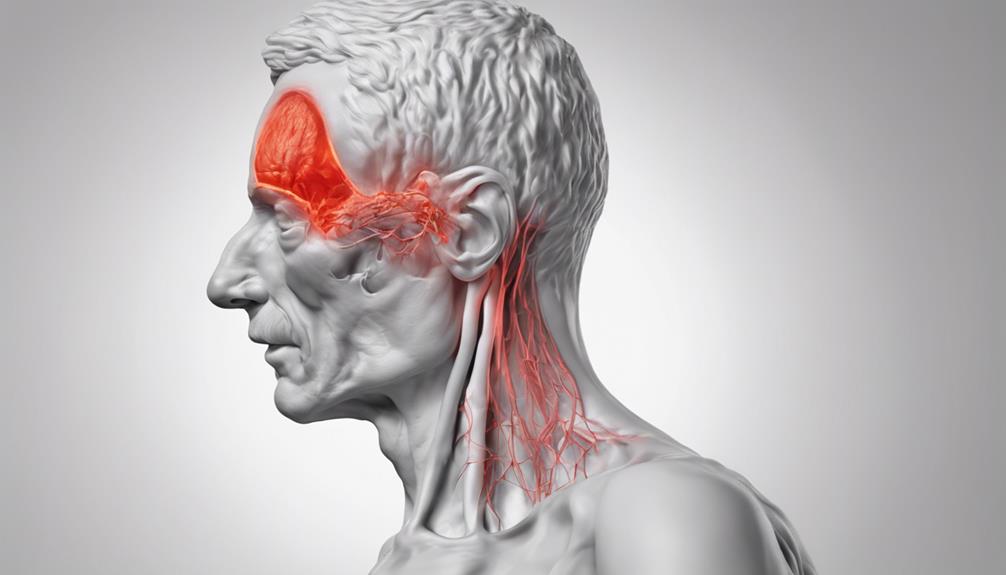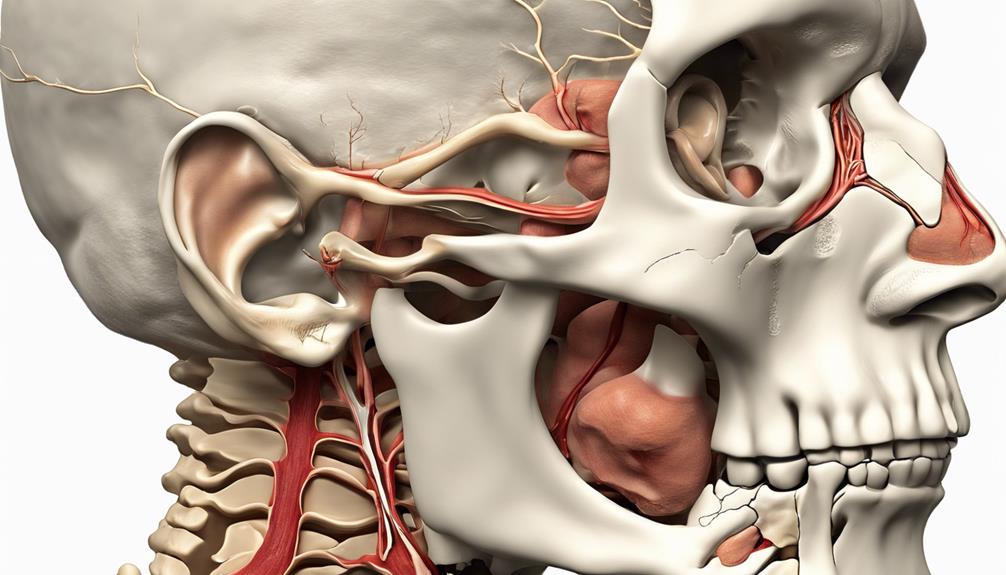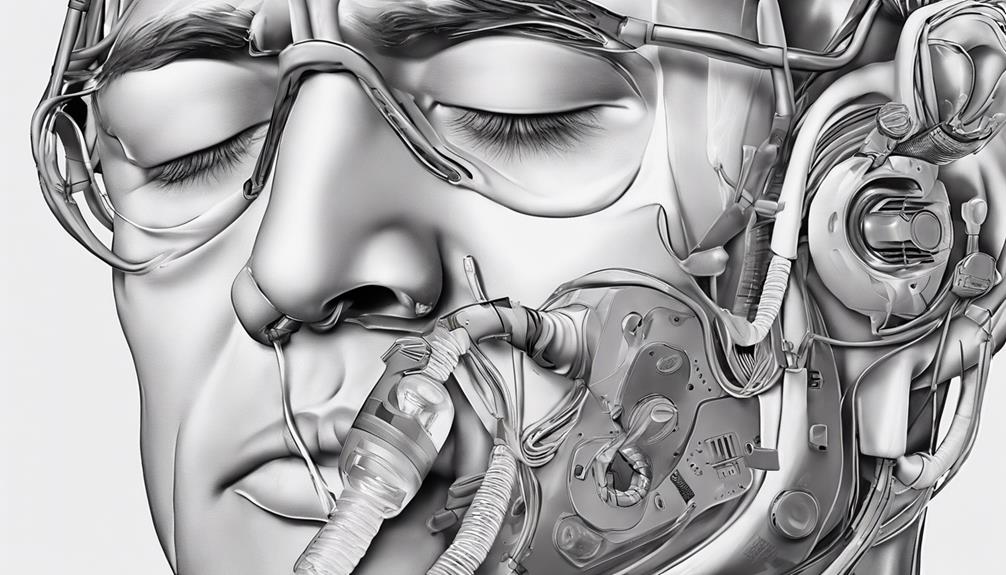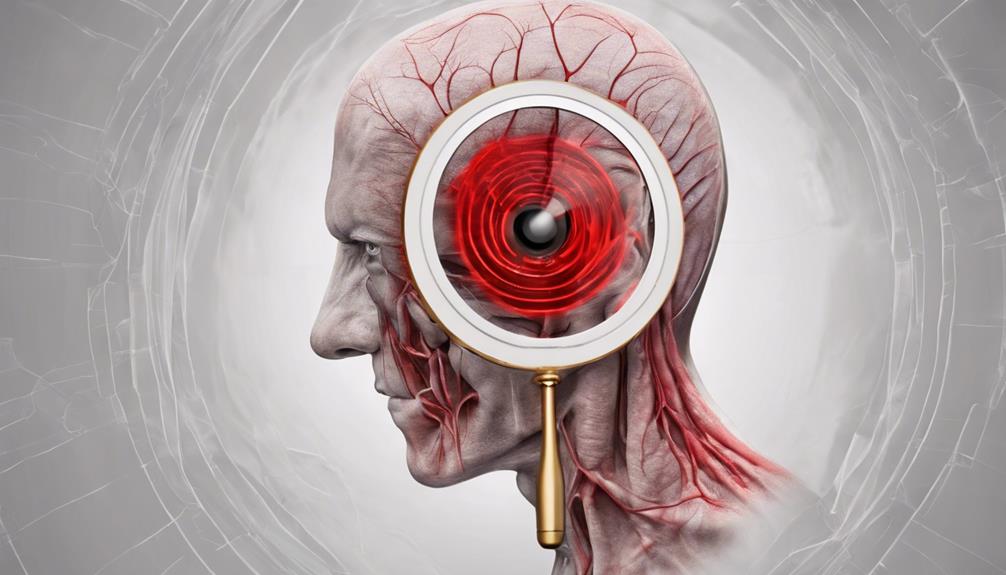Imagine waking up one morning to discover yourself struggling with persistent nasal congestion and a persistent earache. It may be tempting to brush it off as just a cold, but have you thought about how sinus issues could be affecting your hearing without you realizing it?
The intricate connection between our sinuses and ears is often underestimated, yet it plays a crucial role in our auditory health.
As we explore the intricate relationship between sinus problems and hearing loss, we'll uncover the surprising ways in which these seemingly unrelated issues can intertwine, potentially impacting our ability to hear clearly.
Key Takeaways
- Sinusitis affects Eustachian tube function, leading to ear pressure imbalances and hearing difficulties.
- Inflammation from sinus issues can cause conductive and sensorineural hearing loss if left untreated.
- Prompt management of sinus problems is crucial to alleviate ear-related symptoms and prevent hearing issues.
- Utilizing remedies like humidifiers and nasal sprays can help maintain Eustachian tube function and improve hearing.
Understanding Sinusitis and Hearing Loss
Sinusitis poses a significant risk to hearing health due to its impact on the Eustachian tube, a crucial link between the sinuses and the ears. When sinus blockages occur, they can lead to pressure imbalances in the ear, causing symptoms like ear pain and conductive hearing loss. The inflammation associated with sinusitis can affect the Eustachian tube's ability to regulate air pressure in the middle ear, resulting in difficulties with hearing.
Individuals experiencing sinusitis may also notice symptoms such as tinnitus, a sensation of ringing or buzzing in the ears, and dizziness due to the inner ear's involvement in balance. The inflammation caused by sinusitis can extend to the inner ear, impacting both hearing and equilibrium. Moreover, severe cases of sinusitis have been linked to sensorineural hearing loss, affecting the cochlea's function and leading to high-frequency range hearing difficulties.
Proper management of sinusitis through medical treatment and home remedies is crucial in alleviating ear-related symptoms and preventing long-term hearing issues.
The Link Between Sinus Issues and Hearing

Exploring the intricate relationship between sinus issues and hearing reveals the critical role of the Eustachian tube in maintaining auditory health.
- The Eustachian tube, a narrow passageway that connects the middle ear to the back of the nose and throat, plays a crucial role in equalizing air pressure and draining fluids from the middle ear.
- Inflammation in the sinuses can lead to increased mucus production, causing blockages in the Eustachian tube. These blockages can disrupt sound transmission and result in symptoms like ear pressure and muffled sounds.
- Sinus issues can lead to complications such as partial hearing loss, earaches, tinnitus, and difficulty in hearing clearly, highlighting the intricate connection between sinus health and auditory function.
Understanding how sinus problems affect the Eustachian tube and hearing underscores the importance of managing sinus issues promptly to prevent potential hearing loss.
Seek medical evaluation and consider utilizing home remedies to address sinus inflammation and ensure optimal auditory health.
Impact of Sinus Problems on Hearing
When sinus problems arise, their impact on hearing can be significant due to their influence on the function of the Eustachian tube. Sinuses play a crucial role in maintaining proper airflow and pressure in the middle ear through the Eustachian tube. Sinusitis, often characterized by nasal congestion and inflammation, can lead to blockages in the Eustachian tube, affecting the equalization of pressure between the middle ear and the environment.
This can result in symptoms such as ear pain, decreased hearing ability, and a feeling of fullness in the ears. Additionally, increased mucus production in the sinuses can further exacerbate these issues by causing blockages in the ear canal and interfering with sound transmission.
If left untreated, sinus problems can lead to persistent hearing difficulties, highlighting the importance of addressing sinus-related issues promptly through proper diagnosis and management, which may include hearing tests to assess any impact on auditory function.
Alleviating Hearing Loss Caused by Sinusitis

To alleviate hearing loss caused by sinusitis, we can employ various strategies and remedies that target the underlying issues affecting sound transmission and auditory function. When dealing with sinus-induced hearing problems, consider the following:
- Consult an ENT Specialist: Seeking evaluation and treatment from an Ear, Nose, and Throat (ENT) specialist can help effectively address sinus-related hearing issues. These specialists can provide tailored solutions to alleviate blockages in the Eustachian tube contributing to hearing loss.
- Utilize Home Remedies: Home remedies like using humidifiers to maintain optimal moisture levels, nasal sprays to reduce inflammation, and warm compresses on the face can offer relief for sinus-induced hearing problems. These remedies can help clear congestion and improve sound transmission.
- Maintain an Upright Head Position: Keeping your head upright and avoiding sudden changes in temperature can aid in alleviating symptoms of hearing loss caused by sinusitis. This position helps in proper Eustachian tube function, reducing muffled sounds and ear pressure.
Managing Sinus Issues for Better Hearing
Utilizing effective management techniques for sinus issues is crucial in maintaining optimal hearing health.
To address nasal congestion and sinus inflammation, consider using humidifiers to keep the air moist and reduce the risk of sinus-related complications that can lead to hearing loss. Nasal sprays are beneficial in combating inflammation in the sinuses, which can enhance Eustachian tube function and contribute to hearing preservation.
When experiencing sinus pressure, applying warm washcloths to the face can provide relief and decrease the likelihood of ear-related problems. Additionally, maintaining proper sinus drainage by staying in an upright head position helps prevent blockages that could impact hearing.
It's essential to avoid sudden temperature changes, as they can exacerbate sinus issues, affecting overall ear health and potentially leading to hearing loss. By incorporating these strategies into your daily routine, you can effectively manage sinus issues and promote better hearing.
Frequently Asked Questions
Can Sinus Issues Cause Hearing Loss?
Yes, sinus issues can cause hearing loss. When sinuses become inflamed, it can affect the Eustachian tube, leading to ear pressure and partial hearing loss.
Swelling and blockages can impact the ear canal, causing sounds to seem muffled. Management of sinus problems is crucial to prevent complications like hearing loss.
Seeking proper treatment early can help alleviate these issues and preserve hearing capabilities. Proper care is essential in maintaining healthy sinus and ear function.
How Long Does It Take to Fully Recover From Sinusitis?
We typically recover from sinusitis in 1-2 weeks with proper care. Chronic cases may need weeks to months for full recovery. Antibiotics can speed up bacterial sinusitis recovery within 7-10 days.
Nasal decongestants and saline rinses aid symptom relief and recovery acceleration. Severe or recurrent cases might need healthcare provider evaluation for complete healing. Remember, patience and following treatment guidelines are key to a successful recovery.
How Can I Get My Hearing Back From Sinuses?
We can regain our hearing from sinus issues by addressing the root cause of the problem. Seeking prompt medical evaluation from an ENT specialist is crucial to identify any underlying issues affecting our hearing.
Using treatments like nasal sprays and warm compresses can help alleviate sinus pressure, potentially restoring our hearing.
It's important to maintain good sinus health through proper hygiene and allergy management to prevent future complications.
How Do You Relieve Sinus Pressure in Your Ears?
We can relieve sinus pressure in our ears by applying a warm compress, using nasal decongestants or saline sprays, chewing gum, swallowing, and performing the Valsalva maneuver. These actions help equalize pressure and alleviate discomfort.
Avoiding sudden altitude changes and staying hydrated are also beneficial. These methods effectively manage sinus pressure in the ears and promote overall ear health.
Conclusion
As we navigate the complexities of sinus issues and their potential impact on hearing, one can't help but wonder: Can something as seemingly small as sinus inflammation really affect our ability to hear clearly?
The answer is a resounding yes. By understanding the connection between sinusitis and hearing loss, we can take proactive steps to manage our sinus issues and preserve our precious sense of hearing.
Remember, early intervention is key in maintaining optimal ear health.











